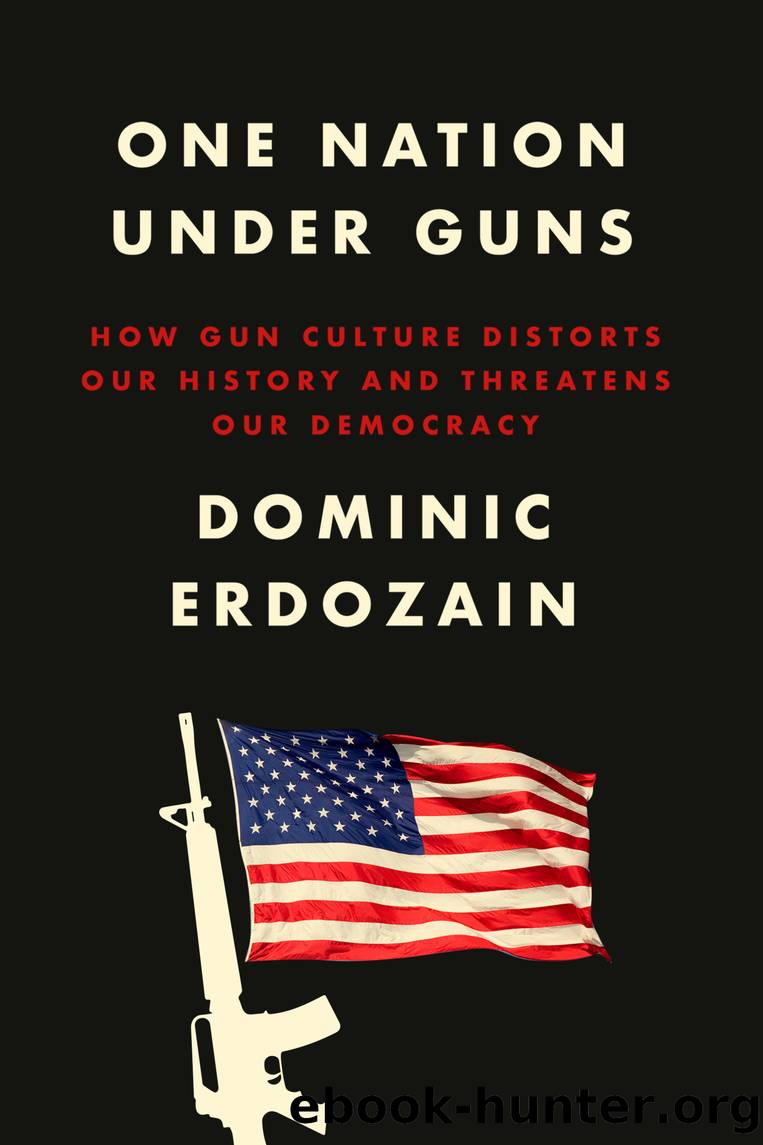One Nation Under Guns by Dominic Erdozain

Author:Dominic Erdozain [Erdozain, Dominic]
Language: eng
Format: epub
Publisher: Crown
Published: 2024-01-30T00:00:00+00:00
II
Reaganâs arrival in the White House, remarked a writer in The New York Times, was one of the darkest hours for the cause of gun control in America. With his election as president, âthe battle shifted from winning passage of stiffer handgun control legislation to trying to keep the conservative tide in Congress from sweeping away laws already on the books.â That is what happened. Reaganâs gun policy was an extension of his foreign policy: good and evil, light and darkness, âpeace through strength.â With Watergate, military defeat in Vietnam, and the Iranian hostage crisis of 1979, the seventies had been a decade of humiliation, a mood in which Reaganâs predecessor, Jimmy Carter, seemed to wallow. For Carter, the problem always seemed to be âus.â For Reagan, it was âthem.â
âWe know that living in this world means dealing with what philosophers would call the phenomenology of evil or, as theologians would put it, the doctrine of sin,â Reagan reflected in a widely quoted speech of March 1983. But âwe,â he proceeded to argue, are not the sinners. Any reasonable observer would have to agree that America had âkept alight the torch of freedomâ in a dark and fallen world. It was, therefore, essential that the United States remained armed and alert against âthe aggressive impulses of an evil empire.â Americaâs strength was her virtue. As Alexis de Tocqueville had famously warned: âif America ever ceases to be good, America will cease to be great.â
Only, Tocqueville never said this. It was not the kind of thing he would say. Tocqueville was as caustic as John Adams on the stupefactions of national pride and the âvaingloriousâ patriotism that plumed itself on âthe corruption of all other nations.â Vanity in a nation, he wrote, was like vanity in a person: âit wearies even those who are disposed to respect it.â Reagan was deaf to this insight as he divided the world into the chosen and the damned, describing the armed opponents of Daniel Ortegaâs Sandinista government in Nicaragua as âthe moral equal of our Founding Fathers,â and refusing to believe reports that they were committing atrocities with American weapons. When the Speaker of the House, Tip OâNeill, confronted the president with photographs of an extrajudicial execution carried out by the Contras, Reagan was unfazed. âI saw that picture,â he replied, âand Iâm told that after it was taken, the so-called victim got up and walked away.â Such was the thinking that poured weapons into Central America, in defiance of international law, and launched a new era of gun rights at home.
In his speech to the National Rifle Association in 1983, Reagan situated the struggle for gun rights within the crunching dialectics of the Cold War. The theme was innocence. The tone, astonishment that anyone could see the world differently. âWeâre a free people, a democratic people; we believe in God and we love peace.â But as George Washington always said: to be prepared for war is âthe best means of preserving the peace.â We needed the guns, at home and abroad.
Download
This site does not store any files on its server. We only index and link to content provided by other sites. Please contact the content providers to delete copyright contents if any and email us, we'll remove relevant links or contents immediately.
The Borden Murders by Sarah Miller(4310)
The Secret Barrister by The Secret Barrister(3696)
Police Exams Prep 2018-2019 by Kaplan Test Prep(2540)
Coroner's Journal by Louis Cataldie(2474)
The Splendid and the Vile by Erik Larson(2458)
Terrorist Cop by Mordecai Dzikansky & ROBERT SLATER(2071)
A Colony in a Nation by Chris Hayes(1926)
My Dark Places by James Ellroy(1925)
The Art of Flight by unknow(1872)
Black Klansman by Ron Stallworth(1790)
Objection! by Nancy Grace(1778)
A Life of Crime by Harry Ognall(1728)
The New Jim Crow by Michelle Alexander(1699)
Anatomy of Injustice by Raymond Bonner(1656)
American Prison by Shane Bauer(1656)
Invisible Women by Caroline Criado Perez;(1638)
Whoever Fights Monsters by Robert K. Ressler(1616)
Obsession (The Volkov Mafia Series Book 1) by S.E Foster(1570)
A is for Arsenic: The Poisons of Agatha Christie (Bloomsbury Sigma) by Kathryn Harkup(1537)
